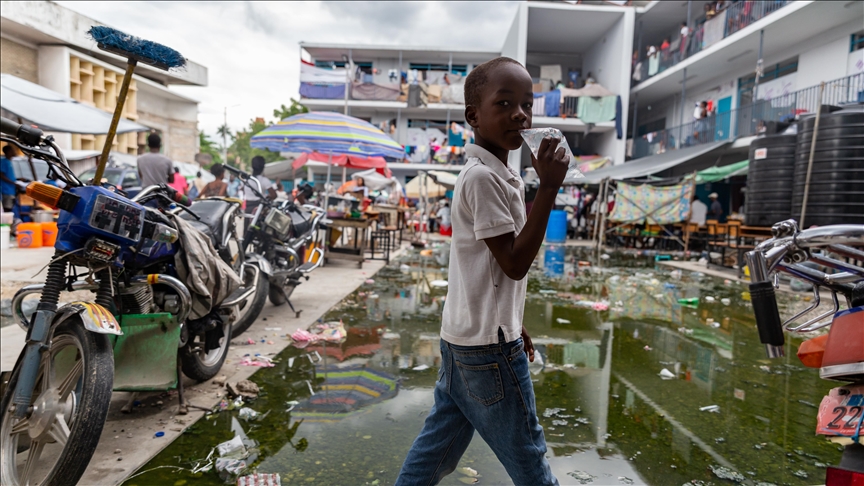UNICEF urges 'safe and secure humanitarian access' for Haitian children
Haiti faces 'catastrophic' humanitarian conditions threatening entire generation of children, UNICEF regional director warns
 A child walks through the courtyard of a refugee camp as people flee their homes in the bas Delmas neighborhood and surrounding area to escape gang violence, due to the relentless actions of armed gangs, many citizens have been forced to flee with their families in Port-au-Prince, Haiti on May 02, 2024.
A child walks through the courtyard of a refugee camp as people flee their homes in the bas Delmas neighborhood and surrounding area to escape gang violence, due to the relentless actions of armed gangs, many citizens have been forced to flee with their families in Port-au-Prince, Haiti on May 02, 2024.
ISTANBUL
UNICEF Regional Director Roberto Benes urged the international community on Tuesday to restore safe and secure humanitarian access to Haiti, citing an escalating crisis for children amid gang violence and collapsed services.
"We cannot allow Haiti's children to remain invisible or forgotten. Our message is clear: restore safe and secure humanitarian access," Benes told reporters at a UN briefing in New York via video link.
He outlined alarming figures reflecting the deteriorating situation. Some 3.3 million children require humanitarian assistance, meaning three of every four children depend on aid, said Benes.
More than 680,000 children have been displaced, many uprooted multiple times as gangs consolidate control over the capital.
"The future of an entire generation is at stake," said Benes, noting that UNICEF launched a child alert for Haiti last week, as an evidence-based call to action spotlighted "one of the world's most urgent and overall crisis for children."
Education, security collapse
Armed groups control approximately 80% of Port-au-Prince, severely restricting access to essential services.
Benes said more than 1,600 schools have been attacked, occupied or rendered inaccessible, leaving roughly 25% of children out of school.
He said approximately one in two armed group members in Haiti are children, some as young as 10 years old, with recruitment surging 70% in a single year.
More than 1.2 million children under the age of 5 live in areas affected by acute food insecurity, creating heightened risk of severe malnutrition, he said, noting families resort to contaminated water sources, fueling cholera and diarrhea outbreaks.
UNICEF documented 2,269 cases of severe human rights violations against children in 2024 -- nearly five times higher than in 2023.
Killings, maimings, forced recruitment, kidnappings and sexual violence were among the most common crimes. Children as young as 10 have been documented carrying weapons for armed groups, while girls face heightened risks of sexual violence.





